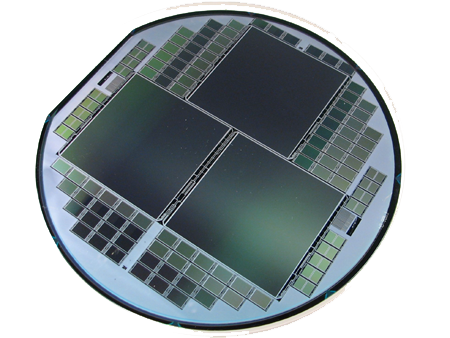Home > Industry news
A semiconductor can conduct electricity under certain circumstances but not always. This property of a semiconductor makes it a good medium to use electricity in a controlled manner as and where required.
Conductance of a semiconductor depends on several factors such as current or voltage applied to a control electrode, or on the intensity of irradiation by infrared (IR), visible light, ultraviolet (UV), or X rays.
So, we can say that a semiconductor is a material that has electrical conductivity greater than an insulator but less than a conductor.
Examples of a semiconductor: Diodes, transistors, and many photovoltaic cells.

Facts about Semiconductor
As I mentioned above, a semiconductor has a dual property – conductor and insulator of electricity. This property of a semiconductor depends on impurities added to the semiconductor material (A pure semiconductor is called an “intrinsic” semiconductor). The impurities added to the semiconductor material to change its electrical property are called “dopants” and the process of adding impurities to the pure semiconductor material is called doping.
An N-type semiconductor is one that carries current in the form of negatively-charged electrons. This is very similar to conduction of current in a wire.
A P-type semiconductor is one that carries current predominantly as electron deficiencies called holes. A hole has a positive electric charge. This charge is equal and opposite to the charge on an electron. These holes flow in the opposite direction of electrons.
A semiconductor can help control flow of electricity. The basic function of a semiconductor device is to switch ON and OFF the flow or electricity as and when required. A semiconductor device can perform the function of a vacuum tube with hundreds of times its volume. A single integrated circuit (IC), such as a microprocessor chip, can do the work of a set of vacuum tubes.
There are several materials and elements used to make a semiconductor. The basic requirement of a semiconductor is that it should not be a very good conductor of electricity, nor should it be a very bad conductor of electricity. Its properties can be changed by adding or removing atoms / impurities.
Semiconductor materials include – antimony, arsenic, boron, carbon, germanium, gallium arsenide, selenium, silicon, silicon carbide, sulfur, tellurium, oxides of most metals.
Silicon is the most widely used semiconductor material.
Superconductor is an element, inter-metallic alloy, or a compound that conducts electricity without resistance below a certain temperature.
Once set in motion, electrical current will flow forever in a closed loop of a superconducting material.
A Diode is an electronic device that allows current to flow in one direction only. It is a a semiconductor that consists of a p-n junction. They are used most commonly to convert AC to DC, because they pass the positive part of the wave, and block the negative part of the AC signal, or, if they are reversed, they pass only the negative part and not the positive part.
A diode is the simplest possible semiconductor device, and is best device to learn and understand how a semiconductor works.
A transistor is a semiconductor device made of a solid piece of semiconductor material and is used to amplify and switch electronic signals. A Transistor can be active in only One Direction and can draw more or less current through its load resistor.
A transistor is another good example of a semiconductor device.
Manufacturing semiconductors need expertise and experience. Chemicals to be used need to be pure and free from any impurity. The process of adding controlled impurities to a semiconductor is known as doping.
Here are the steps involved in manufacturing semiconductors:
1) Design / Mask Creation
2) Patterning
3) Wafer Fabrication
4) Device Formation / Device Insulation Layer Formation
5) Device Formation / Transistor Formation
6) Metallization
7) Assembly and Testing
The semiconductor industry is over $300 billion as of today and is expected to grow @ 13-15% annually. USA, South Korea, Japan, and European Union dominate the semiconductor industry and the business.
Here is a list of top 10 semiconductor companies in the world:
Because of rapid growth in the semiconductor industry, more and more semiconductor companies are coming up. There is great job and employment opportunity of electronics engineers in semiconductor industry.
Semiconductor jobs are available in following categories:
Just explore the “career”, “jobs” or “work with us” section of the websites of semiconductor companies and apply for the best suitable job.
Contact: Andy
Phone: +86 17748683433
Tel: +86 755 85225569
Email: sales@qismt.com
Add: 94# guangtian Road Songgang BaoAn district shenzhen China